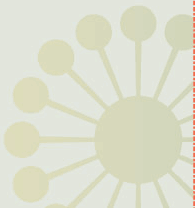THE JUDAS CONTROVERSY
January 2006
The National Geographic Society is planning a documentary film
and article on the long-lost "Gospel of Judas" in which the contents
of this second century document will be revealed.
Irenaeus of Lyon first noted the existence of this "gospel" in
180 AD, linking it to the Gnostics, but it was later condemned
by several bishops, including Epiphanius of Cyprus. The Judas
gospel, of course, was not written by the betrayer of Jesus,
but from its beginning raised an interesting theological argument
that said that if it hadn't been for Judas, Jesus would not have
been betrayed and crucified, and would probably have died of
old age–and humanity would not have been saved by his death
on the cross. By this line of reasoning Judas should have been
canonized as a saint for making possible the salvation of the
world. Somehow the idea of "St. Judas" seems heretical.
Nevertheless, the question arises as to whether one can "bless"
the tragedies of life that make possible the greater good. This
past year we have seen the tragedies of war and terrorism, natural
disaster, famine and disease afflict hundreds of thousands of
people. Should we thank God for this misery because of some possible
future good? Should we sanction such contributing factors as
armed intervention, global warming, and human greed because God
will use our sins and failures to construct a better world? Absolutely
not. That would be diabolical and perverse.
What the Judas controversy teaches us is that in spite of what
we do to ourselves, God is present to take the shattered bits
of our lives and rework them into a new creation. The mistakes
of the past are precisely that, the results of our failure to
follow God's intention for our lives and to live out the true
reason for our being.
When I take the tattered calendar of the past year, complete
with the smudges and erasures, the unfulfilled intentions and
actions that wish I could undo, I close the book on what has
happened. It's still there, recorded for eternity and nothing
can change it. But I have a new calendar and its pages are clean
and white and the unseen word on each page is large and promising,
for each new day begins with the word, "HOPE."
The poet Omar Khayyam wrote in the Rubaiyat, "The Moving
Finger writes; and, having writ, moves on: nor all your piety
nor wit shall lure it back to cancel half a line, nor all your
tears wash out a word of it." Our focus should be on what is
yet to be written on the blank pages of the new year, and consign
to God's love and mercy to fashion what God wills from what is
past.
May God's blessing be with you in this new year.
Dr. Harry L. Serio
|
